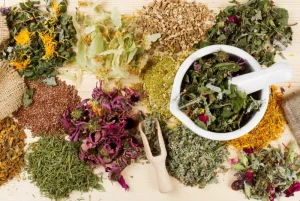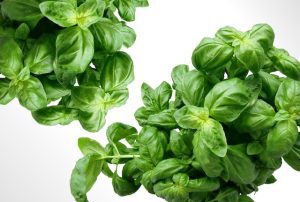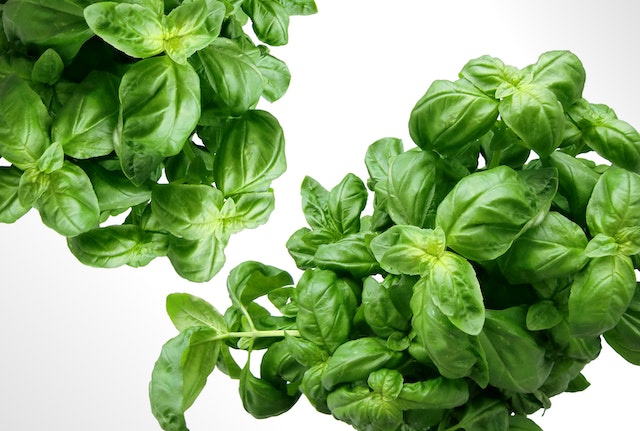Herbs are the culinary magician’s wand, adding depth, aroma, and vibrancy to dishes. They can transform the simplest of meals into gourmet experiences, and choosing between fresh and dried herbs can be pivotal in achieving the desired flavor. In this flavor showdown, we’ll explore the differences between fresh and dried herbs, when to use each, and how they can elevate your culinary creations.
The Fresh Herb Experience
Fresh herbs are like nature’s perfumed gems, offering a burst of flavor, aroma, and color to your dishes. Here’s why they’re the darlings of the culinary world:
1. Intense Aroma and Flavor:
Fresh herbs are at the peak of their flavor, boasting a robust and intense aroma. The essential oils that give herbs their distinct scent are most potent in fresh leaves, stems, and sprigs. Whether it’s the peppery punch of basil, the zesty aroma of cilantro, or the earthy scent of rosemary, the experience of using fresh herbs is unmatched.

2. Bright Color:
Fresh herbs are vibrant and colorful. They not only add flavor but also contribute to the visual appeal of your dishes. Think of the lush greenness of fresh parsley, the fiery red of chili peppers, or the deep purple of basil. They can turn a plain dish into a visual masterpiece.
3. Tender Texture:
Fresh herbs have a tender and delicate texture. When used in dishes that don’t require cooking, such as salads, sandwiches, or garnishes, their softness adds a pleasant contrast to other ingredients.
When to Use Fresh Herbs:
- At the End of Cooking: Add fresh herbs at the end of cooking or just before serving to preserve their vibrant flavor and aroma. They can lose some of their potency when exposed to high heat for extended periods.
- Raw Preparations: Fresh herbs shine in raw dishes like salads, salsas, and dressings, where their intense flavor can take center stage.
- Garnishes: Use fresh herbs as a garnish for soups, stews, roasted meats, or any dish that needs a burst of fresh flavor and color just before serving.
- Herb-Forward Dishes: In dishes where herbs play a central role, such as pesto, chimichurri, or tabbouleh, fresh herbs are indispensable.
The Dried Herb Advantage
Dried herbs, as their name suggests, are the result of the dehydration of fresh herbs. While they may not have the same intense aroma and visual appeal, they offer their unique advantages:
1. Long Shelf Life:
Dried herbs have a significantly longer shelf life than their fresh counterparts. They don’t spoil as quickly and can be stored for months or even years without losing all their flavor.
2. Concentrated Flavor:
Drying herbs intensifies their flavor, making them ideal for dishes with longer cooking times. They can infuse their essence into soups, stews, sauces, and slow-cooked dishes.
3. Convenience:
Dried herbs are convenient and available year-round. You don’t need to worry about having fresh herbs on hand, and you can add them directly to your dishes without any chopping or preparation.
When to Use Dried Herbs:
- Cooking with Heat: Dried herbs are better suited for dishes that involve prolonged cooking or baking. Their flavors have time to meld with other ingredients, creating a harmonious blend.
- Spice Blends: Dried herbs are essential in spice blends like Italian seasoning, herbes de Provence, or curry powder. These blends often require dried herbs to provide a consistent flavor profile.
- Marinades and Rubs: When marinating meats or creating rubs for grilling or roasting, dried herbs can infuse their flavors evenly.
- Soups and Stews: Dried herbs are excellent additions to soups, stews, and sauces that simmer for an extended period, allowing them to release their flavors gradually.
The Perfect Partners: Fresh and Dried Herbs
In many cases, the best culinary results are achieved by using both fresh and dried herbs. This combination can offer a layered complexity of flavors, balancing the brightness of fresh herbs with the depth of dried ones.
For example, consider making a classic tomato sauce. Start with sautéing dried basil and oregano to infuse the sauce with a rich, aromatic base. Then, as the sauce nears completion, add a handful of freshly chopped basil and parsley to enhance the overall aroma and freshness.
Preserving Fresh Herbs
If you find yourself with more fresh herbs than you can use, there are methods for preserving their flavor:
- Freezing: Chop fresh herbs and freeze them in ice cube trays with water. When needed, pop out a herb-filled ice cube and use it in your dishes.
- Drying: You can air dry herbs by tying them in bunches and hanging them in a dry, cool place. Alternatively, you can use an oven or a food dehydrator.
- Herb Oil: Create herb-infused oils by placing fresh herbs in a bottle of olive oil. Allow the flavors to infuse over time.

Photo by Pixabay: https://www.pexels.com/photo/plant-leaves-green-basil-40720/
In Conclusion
The choice between fresh and dried herbs depends on the dish, the cooking method, and the desired flavor profile. Fresh herbs offer unmatched aroma, color, and tenderness, making them ideal for raw preparations and garnishes. Dried herbs, with their concentrated flavor and convenience, are better suited for dishes with longer cooking times and spice blends.
Ultimately, the judicious use of both fresh and dried herbs in your culinary creations can take your dishes to new heights, adding layers of complexity and depth to your flavorscape. Experiment, taste, and let your palate be the guide to achieving the perfect balance of fresh and dried herbs in your cooking.












